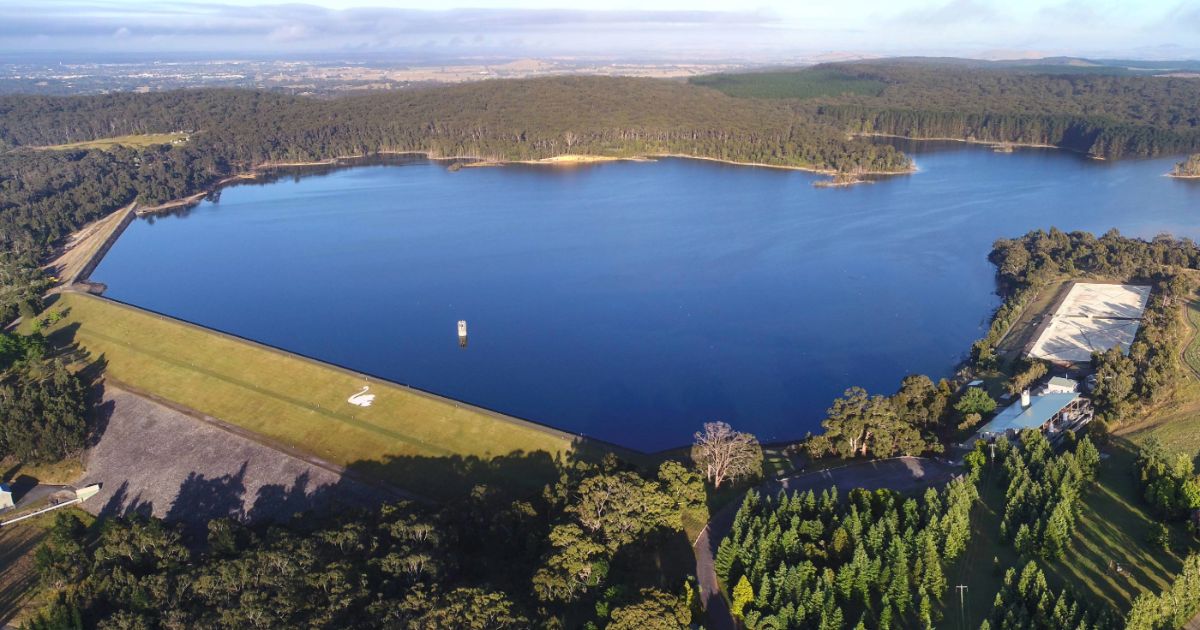What Terry Demeo did: The things that brought down a director
The report by the State Ombudsman is highly critical of the City of Ballarat’s former director of infrastructure and environment Terry Demeo, especially in relation to hiring practices, tender process, and the use of a municipal credit card.
In Ombudsman Deborah Glass’ report it’s alleged Mr Demeo “was improperly involved in recruiting three friends and former colleagues to positions at council.”
In each case Mr Demeo made no conflict of interest declaration.
In one case a contractor, known as Officer A in the report, was brought into manage the City’s 2015 green waste bin roll out. Officer A had significant prior involvement with Mr Demeo from their time together the City of Greater Geelong council.
The Ombudsman found “no evidence Mr Demeo sought other quotes for the work. At interview, he said a recruitment agency would have charged an additional $50,000 to $100,000 for the project. But he did not recall contacting any agencies for an estimate. He said he ‘didn’t have time’ for that course of action.”
During the investigation, Officer A told the Ombudsman “he and Mr Demeo were ‘sort of friends’ at Geelong Council, and they ‘didn’t stop being friends’ when they worked together at Ballarat council.”
Subsequently Mr Demeo told the Ombudsman that his relationship with Officer A “is demonstrably a professional colleague relationship with friendship which is normally/reasonably associated with work colleagues”.
When spending for the green bin roll out went over the budgeted amount, the City’s procurement officer advised Mr Demeo that the remainder of the work would need to go to tender.
Subsequently, 16 tenders for the work were received, nine accepted, one of which was for the previously engaged Officer A’s company.
At first Mr Demeo told investigators he was not involved in the selection of the successful tenders, however during inquiry the Ombudsman presented evidence to the contrary.
Ms Glass found that Mr Demeo has taken part in the tender panel, something one council officer described as “very rarely” happening.
“Very rarely would a director sit on a panel. It would have to be a major project for a director to sit on a panel … We’re not paying him a small fortune to sit on tender panels,” the city’s procurement officer told the Ombudsman.
Officer A’s company was subsequently designated an approved supplier and undertook further work for the City of Ballarat until 2018.
In total the contractor was paid over $385,000 for his work for the City of Ballarat.
The 80-year-old site supervisor

The second hiring case relates to the recruitment of a site supervisor that Mr Demeo had worked with during his time at the City of Greater Geelong.
In July 2016 it’s alleged that Mr Demeo hired the former colleague on a $160,000, 18-month fixed term contact to work on the Ballarat West Link Road Project.
A former council employee who reported directly to Mr Demeo told the Ombudsman the infrastructure and environment director has identified someone for the job “least three to six months prior to the role being advertised.”
Mr Demeo then chaired the selection panel of two despite council policy being that three people should be on any hiring panel.
The Ombudsman found further issues with the employment of the person report describes as Officer B.
On the panel the report states, “Council’s selection documentation named council’s former HR coordinator as the third member of the panel. However, her name was crossed out and ‘not available’ was written in Mr Demeo’s handwriting.”
While he had not formally declared a conflict of interest, Mr Demeo told investigators, “All of the leadership team including the current CEO and [the Director Business Services] knew from an early stage that [Officer B] and I had worked together before.”
Another issue the Ombudsman found with the appointment of Officer B related to medical fitness.
The role was described as physical demanding, with Mr Demeo telling investigators, “The site supervisor needed to work 10-12 hour days, six or seven days a week… site supervisor spent a significant amount of time in a vehicle, which involved getting in and out and inspecting and supervising works.”
Officer B was just under 80 years old when interviewed for the job.
“When we did the interview in the city council offices on the first floor, he had to take the lift up to come to the interview … He had some physical reason preventing him from walking up the stairs,” said the second panel member who also interviewed Officer B.
A subsequent medical check, “[I]ndicated a number of health issues relevant to the performance of the role”, and a former municipal HR officer told investigators there were, “concerns that we couldn’t perhaps provide [Officer B] with a safe work environment.
“Terry was adamant that this was the man for the role and that he needed him in the role because there’s nobody else who could do this role.”
Officer B was subsequently hired and then had his contract extended beyond the initial December 2017 engagement until September 2019.
The Ombudsman found that the extension of Officer B’s contract was “unusual” for two reasons.
First, Officer B’s salary package allowance was increased by $30,000 to $40,000 because he began using his own car. Mr Demeo told investigators he was not aware of the increase.
Secondly, Officer B had been working from a site hut after the project was completed and then from a location near the old sale yards due to what Mr Demeo told investigators related to issues with the Link Road and then to prevent theft from the old sale yards.
However, Mr Demeo later conceded it also had to do with issues relating to “Officer B’s preference to work alone and not come into council offices.”
Officer B resigned in June 2019, mid-way through a project. Investigators described it as for “issues regarding a poor outcome of a road construction and a failure to follow and document the appropriate procurement process.”
Changed requirements
The third allegation of improper hiring relates to a recently graduated council employee in the City’s statutory planning team, known in the report as Officer C.
Officer C submitted to the Ombudsman there was a connection between her family and Mr Demeo, “lived in the same town and her father knew Mr Demeo through work and a local sports club.”
At first Officer C worked under Mr Demeo as a work experience student in the planning team at the City of Greater Geelong, undertaking two placements in 2007 and 2008.
Mr Demeo submitted to investigators that “Officer C’s father was no more than ‘an acquaintance’ and he could not remember Officer C working at Geelong council.”
However, he later admitted he remembered Officer C.
Officer C said that in 2014, after graduating she reached out to Mr Demeo regarding an advertised role at council.
“I just always remember that one time of work placement, him just being so incredibly nice and he has a really good reputation in the planning industry so when I knew he’d ended up at Ballarat I reached out to find out why, how he enjoyed it, and what he thought the culture was like,” Officer C told investigators.
Officer C subsequently got the job, although the Ombudsman’s report found that Mr Demeo was not involved with the recruitment.
Officer C, who continued to live in Geelong stayed twice with Mr Demeo’s relatives when council meetings ran late, as well as at other locations in Ballarat.
In 2015, when Officer C went for a promotion directly under Mr Demeo in a manager role dealing with laws and parking enforcement, the recruitment process had to be run twice.
The first time Mr Demeo chaired the selection panel of three, which also included a former HR coordinator and a manager who directly reported to Mr Demeo.
Officer C told investigators that after the interview Mr Demeo told her she was the preferred candidate, but walked back the statement the next day after the former HR coordinator flagged issues with Officer C’s suitability for the role, telling investigators “[I] felt that this was not okay and I know [the other panel member] is friends with Terry as well and he’s from Geelong. I felt a little bit they’d already made their mind up.”
Afterwards the former HR coordinator raised the issue with the HR manager, who subsequently reviewed the files, later speaking with Mr Demeo, who reiterated that Officer C was the right choice.
The role was then readvertised in November 2015 with a changed position description that was better suited to Officer C’s skills and experience.
Once again Mr Demeo chaired the selection panel and once again, Officer C was chosen as the preferred candidate and appointed to the role in December 2015.
Then, in 2016 when CEO Justine Linley sought to reduce the number of manager roles from three, to one, including Officer C’s position.
The Ombudsman’s report states that Mr Demeo sought to make Officer C the executive manager without a recruitment process, saying to the CEO in an email, “Justine, yes I have spoken to all but two of my managers … Proposal is for … [Officer C] to head up regulatory services as executive manager.”
However, Mr Demeo backtracked, instead choosing to appoint Officer C to an acting role and then holding an internal recruitment process, to which Officer C was the only, and subsequently successful, applicant.
Mr Demeo again chaired the selection panel.
Ultimately the Ombudsman found that in all three cases, Mr Demeo, “acted improperly in connection with the recruitment of his friends and former colleagues” and should have declared a conflict of interest.
In his response to a draft of the Ombudsman’s report, Mr Demeo rejected any wrong doing in the recruitment of all three staff members but acknowledged a perception of conflict of interest.
“I deny that I had any improper involvement of the recruitment of [Officer B], [Officer A] and [Officer C],” he said. “I reject that my association with them at the time of the appointments could be fairly characterised as friendship. We were not friends. In the case of [Officer B] and [Officer A], I had worked with them before.
“In the case of [Officer C], I was aware of her but not friends with her. I do accept that there was a deficiency in the composition of the panel for [Officer B]’s appointment. I take responsibility for that deficiency.
“I also accept that there was the potential for perception of conflict and that I should have completed a formal statement or declaration but I do not accept that I was wrong to play the parts that I did in their respective recruitments.”
Splitting the bill

Further allegations, while not directly involving decisions by Mr Demeo relate to splitting purchase orders for works done at City Oval, a child care centre and at the Creswick Road carpark.
At City Oval the municipality funded works at the site in 2017 to the tune of $1.6 million however the upgrades didn’t deal with all issues to do with drainage and damage caused by the previous works.
That meant when contractors left the site Mr Demeo’s team came into address remaining issues including resurfacing works in front of the Mair Street grandstand, replacing drainage, fixing the parking and addressing a gap between the fence of the oval and the pavement.
All up the works were set to cost between $250,000 and $300,000, however the Local Government Act says that anything over $200,000 must go out for tender, while council policy sets the threshold at $125,000.
A team leader at council submitted to investigators that such a tender process would have taken three months because of advertising and sign-off requirements.
Two weeks later, in discussions about the works with Mr Demeo, the team leader suggested using preferred suppliers to complete the work.
“As long as we didn’t pay one contractor on this job more than the $125,000 threshold, we weren’t breaking any of the rules … We can have ten contractors on this job … Once I’d done the estimate, I knew then that not one of the contractors, and they’re all preferred suppliers, … not one of them was going to get $125,000, not one. Because the work wasn’t there,” the team leader told investigators.
The Ombudsman’s repot says that the City of Ballarat’s director of business services Glenn Kallio and director of community development Neville Ivey both questioned the team leader about the cost and using preferred suppliers.
Mr Kallio told investigators, “He [the team leader] would have told us to go to tender if it had been needed. If any of those suppliers had been in excess of the thresholds we would have gone to tender … If [he] had said we needed to go to tender, we would have gone to tender.”
Mr Kallio also noted the urgency of the works.
“[W]e didn’t have the time [for a tender]. Plus, it would have been multiple little tenders because it wasn’t one job. [The team leader] project-managed all these little jobs. If we’d gone to tender, we would have tendered separately for the bitumen, drainage and landscaping,” he told investigators.
In a separate case in April 2018 an invoice for $58,000 was split on a job for a child care centre, despite being well below the threshold for either a State or City of Ballarat mandated tender process.
Lastly the Creswick Road carpark works drew the ire of the Ombudsman, mainly because they ended up costing $714,000.
Mr Demeo submitted that originally the project was meant to cost less than $200,000, however subsequent costs spiralled as the scope of the work grew.
Ultimately while splitting the cost of the works at City Oval seemed to be the idea of the team leader involved, the Ombudsman laid the blame at the feet of Mr Demeo, saying the decision to get around the tender process, “[P]otentially undermines the purpose of procurement controls in the section 186 of the Local Government Act and the spirit of council’s procurement policy.
“It is also questionable whether such an interpretation, apparently for the sake of completing projects quickly, complies with council officers’ obligations in the council’s code of conduct.”
The Ombudsman made no finding about the Creswick Road carpark.
On the cards
The final series of allegations levelled at Mr Demeo relate to his use of a municipal credit card.
During the investigation it was found that Mr Demeo had used his card to pay for $360 worth of good-bye drinks for a staff member in 29 July, 2016, as well as $7000 for coffees meals and beverages during meetings since his appointment as a director in 2016 and October 2018.
Notably the report also found that he’d spent $950 on a Flemish Light Chandelier for a meeting room on the first floor of town hall.
Mr Demeo told investigators, “Having arrived at the site to pick it up, I … was not aware that it was not paid for. So the only mechanism that I had available to me at that time was to pay for it on the credit card, so I used that.”
Mr Kallio told the investigation, that while some of Mr Demeo’s purchases on the council credit card, “were not appropriate and should have been purchased”, Mr Kallio also noted that, “[I]t was likely Mr Demeo bought them because the [then] mayor [Samantha McIntosh] wanted them for the town hall.”
In the end the Ombudsman found that while Mr Demeo’s use of the card amounted to purchases appearing to be “[I]nappropriate and not in accordance with council’s corporate purchasing card policy.
“However, while the purchases may evidence poor judgement on Mr Demeo’s part, they do not appear to constitute ‘improper conduct’ for the purposes of the Protected Disclosure Act.
“Mr Demeo’s purchase of items for the town hall refurbishment, including a chandelier costing nearly $1000, does not appear to have been prohibited under council policy. It was nonetheless unusual for Mr Demeo, a council director, to be personally involved in this purchase.”
Mr Demeo’s formal response, if any was provided, to the allegations of improper use of the council credit card was not published in the Ombudsman’s report.
Mr Demeo was contacted and asked to respond to the allegations outlined in the report, he declined to make comment.
Read the full ombudsman’s report here.



















